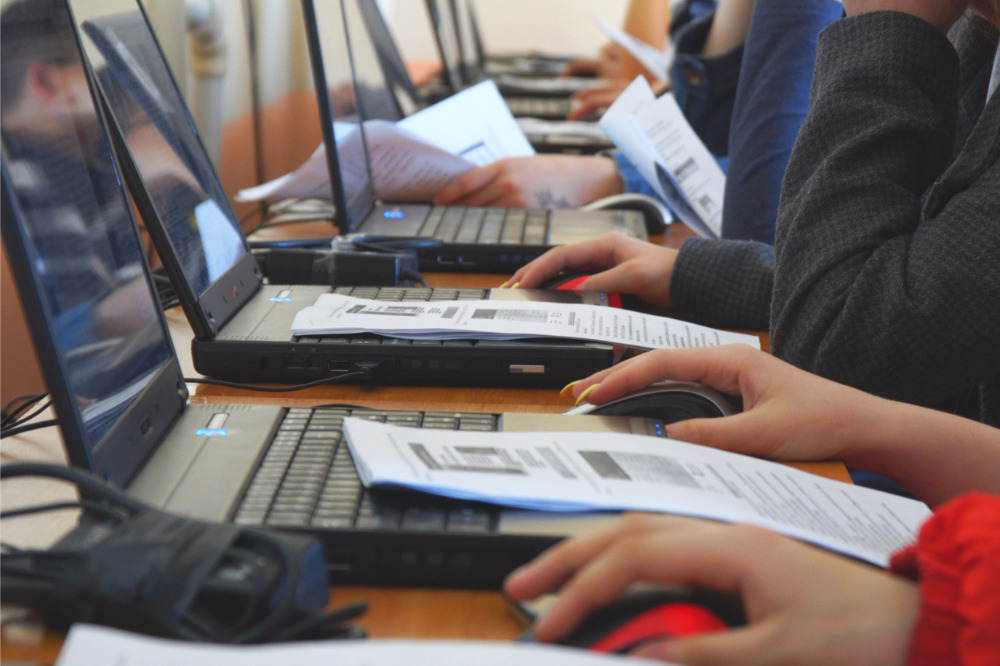
When asbestos was found in Monaro High School buildings in early 2020 it forced the closure of 15 classrooms and office spaces overnight.
If there was any sort of silver lining it was that this unexpected obstacle accelerated the digital transformation planned for the school, a decision which would later allow the school to respond rapidly to the COVID-19 pandemic.
Based in southern NSW, the school serves the Monaro district of the state with close to 500 students coming from Cooma and seven surrounding towns and villages.
Today, Monaro High School is mid-way through a major upgrade that will turn it into a future-based learning environment, infused with technology.
Besides new flexible learning spaces for art, performance and technology in a dedicated innovation hub, the redevelopment will establish a new two storey performing arts centre with 350-person capacity.
It was during the redevelopment that the asbestos was found, and classes were required to relocate urgently.
“We had the impact of the bushfires, then asbestos, and now COVID-19 – it’s been an interesting year,” Monaro High School principal, James Armitage, told The Educator.
Armitage had already committed to an overhaul of the technology platforms used across the school and had invested in Surface Pro devices for all staff.
While there had been plans to roll these out gradually following formal professional development programs the discovery of asbestos demanded faster action.
‘Professional support ninjas’
To support necessary immediate and ongoing professional development Armitage asked for staff volunteers to act as “ninjas” who would provide informal professional development and support to their peers, helping them come to terms with the new devices and also with Microsoft Teams allowing them to leverage technology both in and out of the classroom.
It meant that by the time that COVID-19 and the related health advice regarding student attendance from the NSW Government took hold, Monaro’s teaching staff were already reasonably familiar with the new technology.
Armitage said that in the lead up to the Easter school holidays fewer students were attending classes at the school with the majority being taught remotely.
“Without the decision to buy the Surface Pros last year we would have been in all sorts of pain,” Armitage said.
“It has been a real pleasure to witness the resilience of staff who were thrown into this really complicated environment just with a basic introduction to Teams and their Surfaces”.
Armitage said some maths teachers have conducted synchronous learning with Surface in classroom and casted lesson into the cloud, as well as on the board.
One of those teachers is Alix Coffa, a newly accredited maths teacher and one of Armitage’s team of ninjas. Working with a group of her peers Coffa has supported other teachers by showing them how to use the Surface Pro and work with Teams.
The ninjas have also set up Teams channels for all the key learning areas in Years 7-10 and developed support materials to help parents and guardians navigate the challenges of getting their children online from home.
Teachers of Years 11 and 12 students have meanwhile created their own Teams channels with an immediate focus on connection with students through individual classes.
However, Armitage pointed out that not all students can access lessons remotely as the demographics of the school mean that not all have access to technology or the internet at home – sometimes because they live on properties with little connectivity, or for other reasons.
Where possible the school has made older Department of Education provided equipment available to students – but longer-term Armitage is hoping to implement a bring your own device (BYOD) program in the school.
Teachers have worked hard to ensure that the lesson plans delivered online can also be printed and collected from school for the foreseeable future.
‘There will be a lot of appetite for doing things differently’
Armitage says that teachers have also benefitted from access to the high-quality professional development materials available through Microsoft.
“By Easter, Microsoft had pushed us well down the path of developing the digital skillset which will support the pedagogy required at Monaro High post the current upgrade,” he said.
“From here the focus will be on refinement and personalised support around professional development”.
From a strategic vantage point, Armitage believes that the rapid rollout of Teams has left the school well placed to offer more flexible based learning to enhance the curriculum in the future which he believes will be a significant advantage.
“My long-term aim is to ensure we are providing kids for a future that is unknown – with the current uncertainty we don’t know where we are going today let along tomorrow,” he said.
“When COVID-19 settles down there will be a lot of appetite for doing things differently”.


